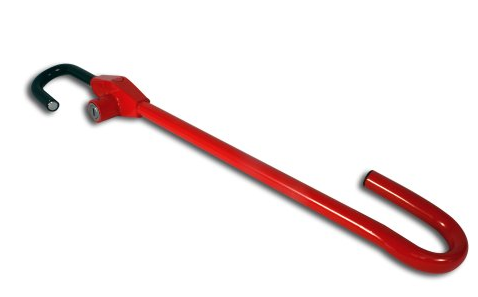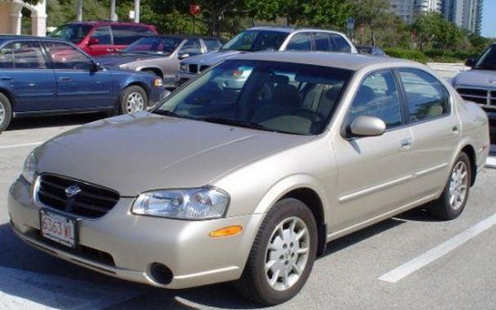I am not important enough to be paranoid – and neither are you
I am not important enough to be paranoid. In fact, I’m not important enough to pay attention to myself. I don’t even read the stuff I post online. Why should I? No one else does.
The idea that we are important enough to be under surveillance is really very amusing because no one ever asks the question: who is doing the watching?
The vast amount of information being collected on a daily basis is, we are told, being reviewed by artificial intelligence programs that are constantly sifting every piece of data and finding matches to the paradigms stored in their algorithms.
That’s great news, if you want a safe society. It’s terrible news if you want a free society, which is the conundrum we always face, the choice between security and freedom. It also isn’t true because those computer systems are overloaded with the influx of surplus information they are being fed.
Here’s the problem for that kind of wishful thinking. Not only is there too much information, but we are surveilling that information for too many triggers, too many phrases, too many financial transactions, too many documents, too many images…because, sooner or later, every single hit that is generated by these automated systems must be reviewed and evaluated by a human being.
Here’s an example:

Every heard of a Crook-Lock? It’s one of those anti-theft devices that were popular before LoJack and other electronic security systems became ubiquitous.
It’s a simple little device, a metal bar that hooks around your brake pedal and wraps around your steering wheel, making it impossible to either turn the steering wheel or use the brake. If you have a clutch, that’s even better. Your car isn’t going anywhere if you can’t depress the clutch because modern standard transmissions are designed so that the car won’t start if the clutch isn’t engaged.
The Crook-Lock isn’t foolproof. I could pick the lock with bent paperclip, which I have done on more than one occasion. It can be cut in half with a bolt cutter, or sawed in half with battery powered drill with a diamond cutting wheel attached to it.
The Crook-Lock is simply a very effective deterrent. If a car thief sees a Crook-Lock on your steering wheel, he (or she) will simply move on to the next car.
The Crook-Lock is, however, a very valuable deterrent because it is immune to the electronic devices that car thieves can use to defeat electronic security systems.
The special value of the Crook-Lock is that, while thieves now walk around with master keys and electronic overrides for even the most expensive electronic systems, they do not walk around with bolt cutters or battery powered drills, which means that the Crook-Lock is actually a more valuable deterrent than security systems costing thousands of dollars.

I have a special need for a Crook-Lock, because my 2000 Nissan Maxima no longer has an effective security system. The factory installed system died years ago…but my Maxima is a highly desirable ride for car thieves because it is fast, powerful and easy to hot wire.
Normally, this isn’t much of a problem, since I rarely travel more than ten miles from home, and the car is almost never parked anywhere other than my driveway after dark…because the dash lights don’t work any more.
(If you are getting the impression that my Maxima is a junker, you are quite right…but it has a five speed manual transmission, is very fast, and very nondescript. Cops just don’t see it as it flashes by them and it seems to be immune to radar.)
This past weekend, however, I was hooked on the horns of a dilemma. I had to park my Maxima at the Tri-Rail station, where it would be sitting long into the night while I went down to Pompano on the train.
Feeling paranoid about leaving my car in that situation (remember, I am worrying about the car not about my own self), I dug out my old Crook-Lock, rummaged around until, to my amazement, I actually found the key to the thing. That’s when I discovered that the lock was frozen and that the key wouldn’t turn.
I tried various lubricants but nothing seemed to work and eventually I broke the key off in the lock.
I went online, looked up Auto Zone, found a location near me, and searched for the Crook-Lock. I found half a dozen, ranging in price from the deluxe model at $49.99 down to the basic model at just $15.99, which was the same price I paid for the same item forty years ago.
I ordered the basic Crook-Lock, paid for the item online with my credit card, then drove over to Auto Zone to pick it up on my way to the Tri-Rail station.
I had every confidence that the Crook-Lock would be there when I arrived because the AI program that monitors the inventory in the Auto Zone stores had already identified the item in question, marked it as sold, charged my credit card for the appropriate amount and sent an instruction to the store manager to take the item off the rack and put it in storage pending my arrival.
That’s exactly what happened. I had to wait while the clerk was attempting to figure out which oil seal would work with another customer’s automatic transmission. It turned out that the make and model the customer was trying to fix had five different transmissions that might have been installed in that car, so the clerk sent the customer back to his car to get the model number off the transmission because his AI system couldn’t figure that out….and then he waited on me.
Waiting on me consisted of putting the Crook-Lock on the counter, looking at my driver’s license, then printing out a receipt for me to sign. He didn’t even want to look at my credit card. He already had that.
Stop. This is where the myth of the omniscient surveillance system breaks down. The AI program could check inventory, order the items moved around, verify my credit card, and debit the card for the purchase price plus taxes, but it could not verify my identity.
There was a security camera pointed right at me. The AI program could have easily compared my image on the security camera against the picture on file for me at the Registry…but the cost of interfacing those systems, and time costs for those additional operations, outweighed the cost of simply having the store clerk verify the transaction.
In fact, Amazon is working on such systems for their retail operations, with smart shopping carts that will ring up your purchases as you put them into the basket and charge your credit card as you exit from Whole Foods, while keeping a database of the items you purchase and the frequency of your purchases.
However, in the final analysis, actionable intelligence is only actionable when a human being decides to take action in response to the findings of an artificial intelligence subroutine.
The day will probably come around when androids will replace the human beings in the system, so that the androids will take the actions that the AI programs instruct them to take.
When that they comes, we will be living in a perfected absolute dictatorship in which the machines will really control us hand and foot. It is pretty nearly impossible to argue with a human cop. Imagine how much harder it will be to argue with an android cop.
The only benefit is that android cops are less likely to shoot people of color because they are people of color. In fact, white people who are accustomed to being given a certain amount of leeway by human cops might be shocked to discover that android cops are unlikely to give you the benefit of the doubt because you are white…unless some racist programmer programs the android.
That night, when I returned to the Tri-Rail station, there was a cop standing by my car, which was sitting all alone in the empty lot.
“This your car?” he asked, as I approached my vehicle.
I thought about asking for a lawyer, but merely said, “Yes. It’s mine.”
He said, “You’re a lucky man. Four cars were boosted out of this lot tonight. They didn’t touch yours. You know why?”
I said, “Because it’s twenty years old?”
He just shook his head.
I said, “Because of the Crook-Lock?”
He nodded, “Yep. Best invention ever for car protection. I use one myself.”
I said, “I feel like we’re doing a television commercial.”
He said, “Maybe we should.”
The moral of this story is pretty clear. Much of what we are being told about the new technologies is wishful thinking. Some of it is actual fear mongering from the left, who feel that their freedoms are being impinged, and from the right, who don’t think we have gone far enough.
When people like Elon Musk and Stephen Hawking caution us about the dangers posed by artificial intelligence, they are forgetting that the people who are using that technology are no smarter than they were a century ago.
![]()


12/12/2022 @ 10:05 am
Alan,
I am in complete agreement with the sentiment you assert in the title of this piece…
AMEN!!!